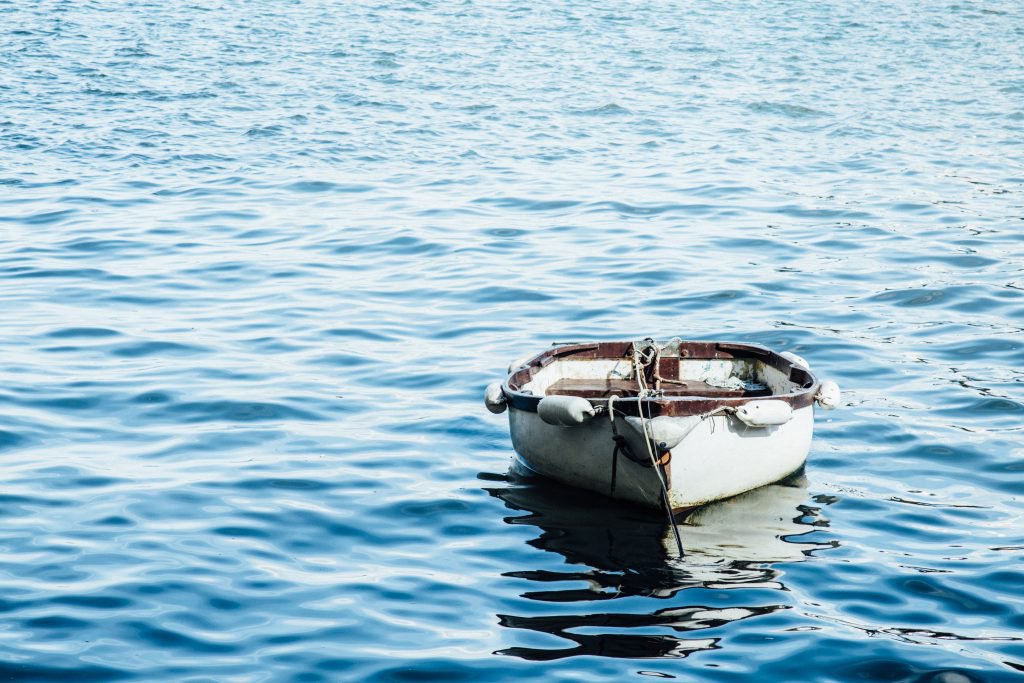“Where would there be leather enough to cover the entire world? With just the leather of my sandals, it is as if the whole world were covered.” — Śantideva
A man was paddling his canoe up the river when he noticed a boat in the distance. The man moved to the right side of the river, as was the custom so that the vessels could pass each other.
As he got closer to the other boat, he noticed it too was on the same side of the river. He waved his arms to get the other boat’s attention. The man started to get annoyed as the boat did not move to the other side of the river.
The boat was getting closer, and the man shouted, “Move to the right!” and waved his arms. Still, the other boat continued on its course, and the man grew angry.
He stood up in his boat, yelling, “Move to the other side, you idiot! You’re going to crash into me! What is wrong with you?”
The other boat was now quite near, and as the man had predicted, there was a horrible crash. There was a large hole in the side of the man’s boat, and it began to fill with water, and he noticed, the other boat had bags of cargo, but there was no one steering the ship, there were no people on board. It was an empty vessel.
Recently, a client asked me, “I have spent a lot of time getting better at how I deliver feedback, respond to feedback, and approach disagreements. Why do I still have to deal with these idiots that don’t?”
It is easy to get stuck in this trap as we learn and grow. We see the bad habits displayed by others that we have seen in our selves and worked to improve, and we are indignant. We know what we are doing is right and wonder why other people cannot change as well. Like the boater that knew to move to the right to allow other boats to pass safely, the boater got upset that the other boater wasn’t following the rules. I think we all have been in the position of this boater or my client; I know I have.
Rather than noticing others mired in habits and patterns that we too were once stuck in, we assume that other people are out to do us harm, push out buttons, or at the very least, are idiots. We think that because we know better, the only excuse for people behaving this way is willful animosity. At the same time, how often are we stuck in our habits, unaware of others, and the impact of our actions? At these times, we and others are like the empty vessel heading down the river towards us. We can yell and get upset, but in the end, we suffer.
We all encounter situations like this regularly at work and in life. We confront obstacles that are beyond our control. When we see these situations as encounters with empty vessels, we remove the anger and blame that we place on others. We can see people stuck in the circumstances and ways of behaving that are a part of their habits. When we make this shift, we can see what we can control in the situation. We should still provide feedback and help people grow, but we should be attached and focused on what we can control.
Recently I was out running. There is a place on my run where I have to cross the street, and it is tough to see cars coming. I got quite upset as no cars slowed for me, and I had a very awkward time crossing at the crosswalk. “What is wrong with these drivers?!” I thought as I cursed them for screwing up my run.
In reality, the cars were empty vessels. Not that the drivers could not have paid more attention to me, but realistically they were in the middle of their commutes, on auto-pilot, and watching for other cars, they were unaware of the one runner that wanted to cross at that moment.
On my morning runs, I now take the loop in the other direction. This gives the ability to see oncoming cars for a much longer stretch and better plan how to cross the street. I now have given myself what I need to be able to avoid the empty vessels, and I can focus on my run.
Where in your life and work can you see places where you are getting upset by the habitual patterns of others? What can you do differently to avoid the empty vessels?

